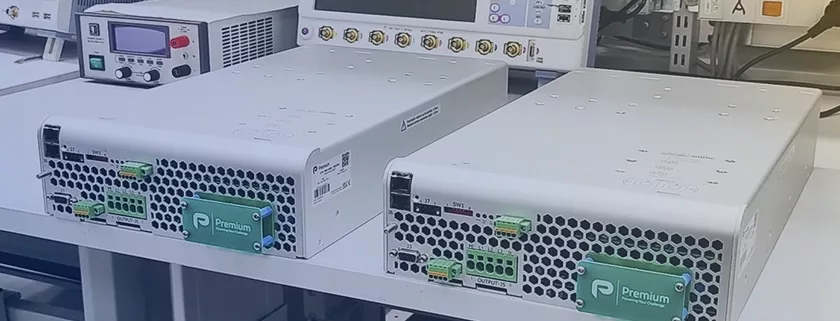DC/AC Inverters: Parallel connection
A power inverter is plugged into a power source such as a battery to convert direct current to alternating current.
Nowadays, more and more distributed generation and renewable energy sources are connected to the public grid via power inverters. They can form microgrids before being connected to the public grid. Due to the availability of high-current power electronic devices, multiple inverters are inevitably needed to be connected in parallel for high-power and/or low-cost applications. Inverters are also often connected in parallel to provide system redundancy and high reliability.
What is a parallel connection?
Inverter’s parallel operation is a viable way to expand power capacity and achieve N+1 redundancy in power electronics. Each parallel module takes its share of the load, so the current stress on the commutation is reduced greatly. Higher reliability, larger power capacity, lower cost, and a shorter development cycle can be achieved, and system configuration becomes flexible by using parallel inverter modules. To reduce the effect of circulation current, the output voltage of all paralleled inverters must be strictly consistent in frequency, phase and amplitude to guarantee the output power sharing. In parallel operation, two or more inverters can be tied together to share a load.
How to connect two or more inverters in parallel?
Connecting inverters in parallel consists of two units of three-phase inverters. The two inverters are connected directly at the input and through resistors at the output ends of the inverters. It is recommended that the inverters are also connected to each other for data exchange.
Inverters with different power are sometimes connected in parallel, especially for system upgrading or to enhance the power rating of any used inverter. In this case, the paralleled inverters must share the currents equally.
In this video, we show step by step how to connect two DC/AC inverters in parallel.





